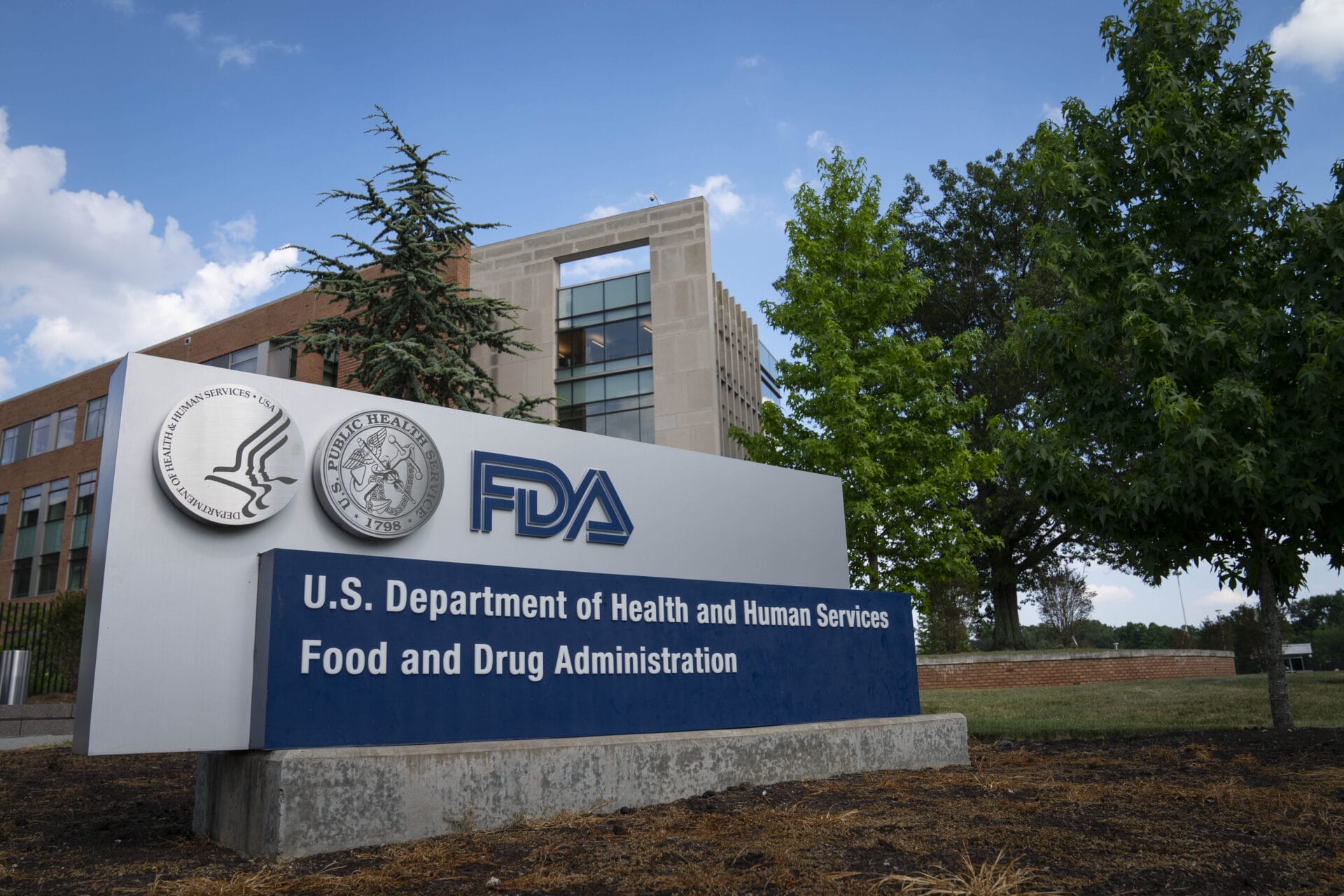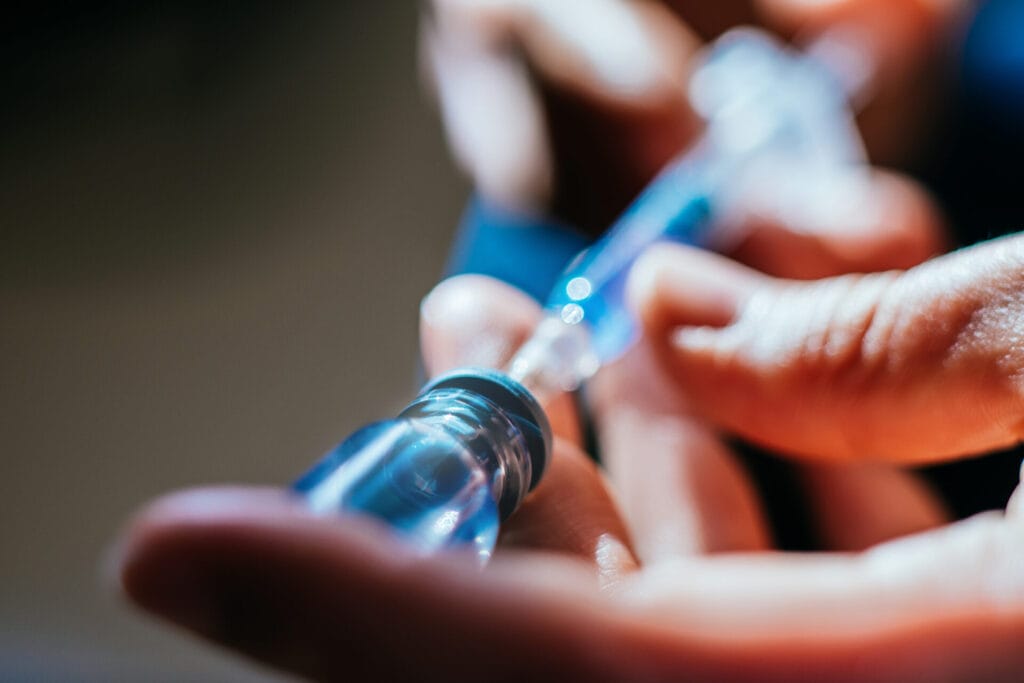The fight against HIV has undoubtedly come a long way in recent decades.
While challenges remain, especially when it comes to overcoming stigma, calling out antiquated HIV criminalization laws and HIV funding at home and abroad, the latest breakthrough in HIV prevention could transform how individuals manage their risk.
Last week, the U.S. Food and Drug Administration (FDA) accepted Gilead Science’s New Drug Application (NDAs) for lenacapavir. The FDA will review the applications under priority review and has assigned a Prescription Drug User Fee Act (PDUFA) target action date of June 19, 2025.
If approved, lenacapavir would become the first and only HIV prevention treatment available as a twice-yearly injection, offering a new option for individuals who are at risk of contracting the virus.

For many people at high risk of HIV, the current prevention options—like daily oral pre-exposure prophylaxis (PrEP)—are effective but can be challenging to maintain. Adherence to daily medications, while life-saving, can be difficult for a variety of reasons, from forgetfulness to stigma surrounding HIV and PrEP. In response to these barriers, the potential of a twice-yearly injectable PrEP option offers hope for a more manageable and discreet approach to prevention.
Gilead’s lenacapavir injection, which is under priority review by the FDA, would provide a groundbreaking alternative for individuals at high risk of HIV exposure. With a single injection administered every six months, lenacapavir would eliminate the need for daily pills, making it easier for individuals to stay on track with their HIV prevention regimen. This shift represents a critical step forward in the way HIV prevention is approached, particularly for those who may face barriers in maintaining daily oral medication.
This innovation is more crucial than ever, as recent data shows that while progress has been made in reducing the number of new HIV cases in the U.S., significant disparities remain. Certain populations—especially communities of color, LGBTQ+ individuals, and those living in areas with limited access to healthcare—continue to experience disproportionate rates of new HIV infections. PrEP, including injectable options like lenacapavir, can be a game-changer in closing these gaps and preventing the spread of the virus among the most vulnerable groups.
Dr. Dietmar Berger, Gilead’s Chief Medical Officer, expressed the company’s enthusiasm, saying, “We’re excited about the potential of lenacapavir to reshape HIV prevention by offering a longer-lasting option for those who need it most.” He emphasized that expanding access to PrEP is critical for achieving a world where new HIV cases are rare, not inevitable.
Lenacapavir has already shown promise in clinical trials, demonstrating its effectiveness in preventing HIV in at-risk individuals. The drug is designed to block the HIV virus from entering cells, offering a powerful tool to stop infection before it starts. Importantly, its twice-yearly dosing schedule could provide a more consistent and reliable option for people who struggle with daily medication adherence, providing peace of mind for those who might otherwise face difficulty staying on track with their prevention regimen.
The FDA’s decision to review lenacapavir under priority status highlights the potential of this treatment to make a significant impact in the HIV prevention space. With the FDA’s Fast Track and Breakthrough Therapy designations already granted to lenacapavir for PrEP, the treatment is on track to be a key part of the next generation of HIV prevention methods.
In addition to the ongoing FDA review, Gilead has submitted applications for lenacapavir to the European Medicines Agency, which is also moving quickly to review this innovative treatment. With such rapid progress, the future of HIV prevention is looking brighter and more accessible than ever before.
In the U.S. and around the world, the need for effective HIV prevention methods has never been greater. More than 1.2 million Americans are at substantial risk for HIV, and while current options like oral PrEP have proven effective, there are still many people who do not access or adhere to the necessary treatment. This is why lenacapavir’s potential to offer an injectable option—one that is easier to adhere to—could revolutionize HIV prevention efforts.
The stakes are high, but so is the promise of progress.
This all takes place in the backdrop of a firestorm of controversy over HIV funding and the closing down of USAIDS by the Trump Administration.
In partnership with PrEP4All, GLAAD has joined together with 100+ advocacy and nonprofit organizations to petition the U.S. Congress to reject $700M of proposed cuts to HIV funding.
According to PrEP4All, U.S. funding has resulted in treatment access for at least half a million Americans living with HIV who receive support annually. Domestic HIV prevention efforts have accelerated with the establishment of the first National HIV/AIDS Strategy in 2010 and the announcement of the Ending the HIV Epidemic initiative in 2019, resulting in a 16% reduction in new HIV infections since 2017 in America’s most highly affected jurisdictions.
If HIV funding is maintained and expanded, the epidemic can be further kept under control for all American communities.
View this post on Instagram
In contrast, a half a billion loss to domestic funding would put all existing progress at risk. Every new HIV infection in the US creates $501,000 in lifetime healthcare costs, a figure many advocates believe is a huge underestimation. An increase of just 2,000 new cases in the US will add billions to our national debt and obliterate any savings House appropriators seek to achieve. Five thousand Americans still die from AIDS-related causes each year. Those numbers will grow if funding for key support services does not continue.
Through the #SaveHIVFunding campaign, the coalition of organizations is gathering support from the community, advocates, allies and leaders in Congress to oppose these cuts, advocate for robust FY25 funding, and urge Congress to honor the bipartisan commitment to end the HIV epidemic in the U.S. by 2030.
The movement to end the HIV epidemic cannot survive such drastic cuts, and HIV historically has been a bipartisan issue, including the EHE initiative which was launched under the Trump Administration in 2019.
Learn more and sign the petition HERE.
For more about HIV education, awareness and innovation, visit GLAAD.org/HIV













